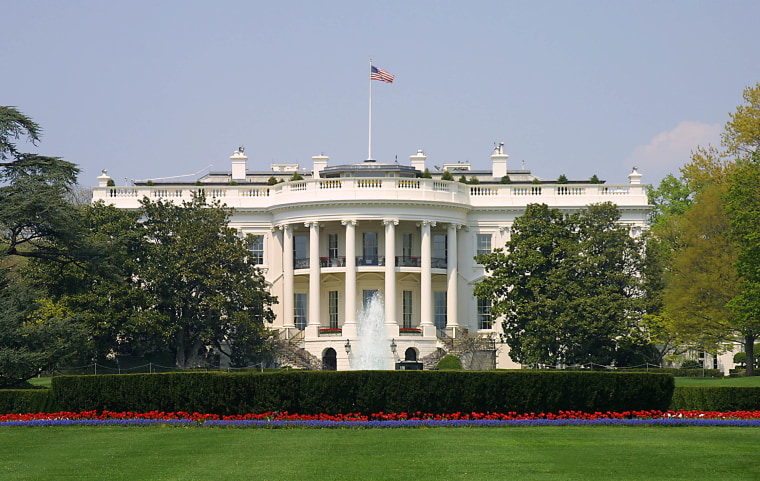When Chia-Chi Teng was voted in to serve as one of six Republican electors in Utah, he figured it would be an under-the-radar, ceremonial position.
“I thought, hey, wouldn’t it be fun to represent the people here,” Teng, an associate professor of information technology at Brigham Young University, told NBC News.
Then Donald Trump won the election, along with Utah’s popular vote. Soon after, the emails, letters, and phone calls came pouring in, Teng said. They all asked him to flip his vote for former Democratic nominee Hillary Clinton when the Electoral College meets on Dec. 19.
After reading the first 15 to 20 emails, Teng, who was born in Taiwan, said he just gave up.
“The fact is there’s nothing we can do anyway,” he said. “It’s not my vote. We’re bound to what the popular election result is. So I don’t know what they’re thinking. It’s just kind of silly in my opinion.”
RELATED: The 'Real' Presidential Vote: Electoral College Votes on Monday
Teng, 53, is one of a coterie of Asian Americans elected in their states to this year’s Electoral College. The process has garnered renewed attention — and some criticism — after Trump beat Clinton 306-to-232 electorally, but lost the popular vote by nearly 3 million.
“The fact is there’s nothing we can do anyway. It’s not my vote. We’re bound to what the popular election result is. So I don’t know what they’re thinking. It’s just kind of silly in my opinion.”
The Founding Fathers devised the Electoral College so that state legislators would select electors — the “most enlightened and respectable citizens,” as John Jay put it — who would choose the president. The chief concern was that ordinary citizens weren’t sufficiently informed or responsible to make that decision.
But just as they did when Al Gore won the popular vote but lost the electoral vote to former President George W. Bush in 2000, some Americans are again asking whether the Electoral College is outmoded. They say the popular vote reflects the will of the people and should determine the next president.
And this time, Trump detractors have been bombarding electors like Teng with impassioned pleas to change their vote, even if their state doesn’t permit it.
“I had no idea it would become this kind of scenario,” said Teng, who himself voted for Sen. Ted Cruz (R-TX) in the primary.
For Varisha Khan, a 21-year-old journalism and political science student at the University of Washington, her parents and her Islamic faith are what inspired her to vie for a spot in the Electoral College, as well as run to be a delegate to the Democratic National Convention, she said.
One of 12 Democratic electors in Washington state, where Clinton won the popular vote, Khan told NBC News her role in the Electoral College is to act on behalf of the people in her district who share the values of the Democratic party. At the July convention, though, Khan was elected as a Sen. Bernie Sanders delegate, she said.
“I knew right off the bat that no matter who would win the candidacy, those are the people I was representing,” Khan said.
While not advocating that the Electoral College be dismantled, Khan did question the present-day function of the body to which she was elected.
“The idea that the Electoral College was supposed to overrule the tyranny of the masses clearly was not played out in this election,” she said.
To be sure, the chances of an Electoral College coup are very remote, experts say. Still, that hasn’t stopped two Democratic electors in Khan’s home state of Washington from encouraging GOP electors elsewhere to break from Trump and rally behind another Republican candidate, yet to be named.
“The idea that the Electoral College was supposed to overrule the tyranny of the masses clearly was not played out in this election.”
The District of Columbia and 29 states, however, have laws binding electors to vote for the candidate who won the popular vote of that state or else face fines.
Trump needs 270 Electoral College votes to win the presidency. Without that majority, the decision would be left to the House of Representatives.
All this comes as NBC News reported Thursday that Russian President Vladimir Putin may have been involved in a Russian campaign to interfere with the presidential election. Some electors have also asked for an intelligence briefing about Russia’s alleged meddling ahead of Monday’s Electoral College meet in each state.
Khan said she hasn’t been part of the movement to get electors to change votes. But asked about what argument she might make to GOP electors not to give their vote to Trump, Khan said she’d tell them the people have spoken and chose the former secretary of state as president.
RELATED: Clinton Campaign Wants Intel Briefings for Electoral College Members
“For us to have a system that goes against that, we’re not serving our nation as best we can,” she said.
But Teng, who ran for Congress this year and lost, sees it differently. He said he prefers the Electoral College as is.
Under it, every state is awarded at least three electoral votes, with additional ones allocated to reflect population shifts each decade. States with smaller populations, like Utah, tend to have fewer people represented by each electoral vote, which translates into higher voting power.
“I like the way it is now is because I think it has broader representation from people from every part of the country,” Teng said. “I think if we go with the popular vote, then the result will be skewed to those bigger states. And I don’t think that’s a healthy system.”
Follow NBC Asian America on Facebook, Twitter, Instagram, and Tumblr.
